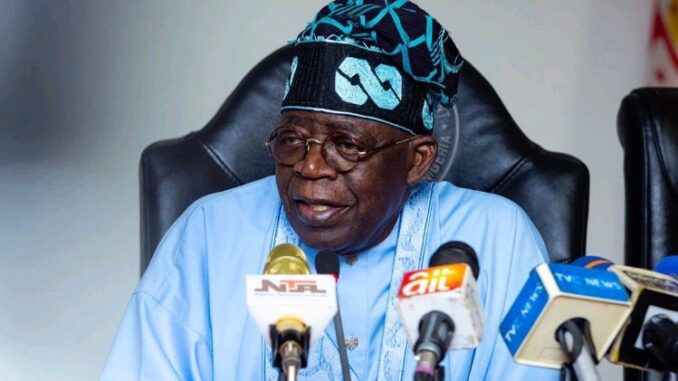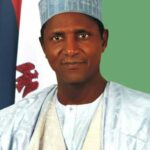
President Bola Ahmed Tinubu on Wednesday unveiled the newly renovated National Arts Theatre in Lagos, announcing its renaming as the Wole Soyinka Center for Culture and the Arts in honour of Nobel Laureate, Prof. Wole Soyinka.
The ceremony, which coincided with Nigeria’s 65th Independence Anniversary celebrations, was broadcast live on Arise Television on October 1, 2025, and attracted dignitaries from across the political, cultural, and literary spectrum.
Among those in attendance were top government officials, cultural leaders, members of the diplomatic corps, and prominent voices in Nigeria’s creative industry.
In his remarks, President Tinubu described Soyinka as a “towering figure in literature and nationhood whose work and sacrifices have inspired not just Nigeria but the global community.”
He emphasized that renaming the iconic theatre was a deliberate step to enshrine the playwright’s legacy within Nigeria’s cultural landscape.
“Yes it is a wonderful evening, First Lady. my wife, a daughter of the freedom that we are enjoying and my own jewel of inestimable value. I say happy birthday once again,” the President began, blending his tribute to Soyinka with personal remarks.
He also extended birthday wishes to the Speaker of the House of Representatives, who shared the occasion with the Independence Day celebration.
“To the Honourable Speaker of the House of Representatives, today happens to be your birthday too. We celebrate you. You will live long, better than this theatre. Thank you very much,” Tinubu added, drawing laughter and applause from the audience.
The President acknowledged the presence of the Senate President, Deputy Senate President, and Deputy Speaker, commending their shared dedication to national service.
“We’ve been all together in Owerri yesterday and here today. Thanks to our dear uncle and leader, one of the most talented and creative minds. Uncle Wole Soyinka. No conspiracy anywhere. I did it,” Tinubu said with a tone of finality, underscoring his personal commitment to honouring the Nobel Laureate.
Explaining his decision, Tinubu recounted how the choice of name had been debated. “I say it has to be Wole Soyinka Center. They corrected my English, but culture and rename it,” he stated, pointing to the symbolic weight of tying Nigeria’s foremost cultural monument to one of its most distinguished intellectuals.
Wole Soyinka, who won the Nobel Prize for Literature in 1986, has long been regarded as one of Africa’s greatest literary voices. His plays, essays, and poetry, combined with his decades of activism and advocacy for democracy, have made him a cultural icon and moral voice in Nigeria and beyond.
The renaming of the theatre is seen by many as a recognition of both his artistic genius and his lifelong commitment to freedom and justice.
The National Arts Theatre, originally commissioned in 1976 ahead of the Festival of Arts and Culture (FESTAC ’77), has been a symbolic home for Nigeria’s performing arts.
For decades, it hosted plays, concerts, film screenings, and festivals but gradually fell into disrepair. The latest round of renovations, spearheaded under Tinubu’s administration, is part of a broader effort to reposition Nigeria as a hub for cultural expression and the creative economy.
Cultural stakeholders at the event hailed the gesture, describing it as both timely and deeply meaningful. The President of the Association of Nigerian Authors (ANA) called the renaming “a long overdue recognition of Soyinka’s place in the soul of the nation.” Similarly, representatives of Nigeria’s film and theatre communities noted that the theatre’s revival could open up new opportunities for young artists.
For many observers, the announcement carried more than symbolic weight. It also reflects Tinubu’s broader emphasis on cultural diplomacy and his administration’s plans to diversify Nigeria’s economy through the creative and cultural sectors.
By tying the rebirth of the iconic theatre to Soyinka’s name, the government is signaling its intent to blend national pride with global cultural recognition.
In his closing remarks, Tinubu emphasized unity and resilience as Nigeria marked its 65th year of independence. “This centre is not just about arts and culture, it is about our shared story as Nigerians. We honour a man who gave us words, courage, and the confidence to face the world. May this theatre, now the Wole Soyinka Center for Culture and the Arts, inspire generations to come,” he declared.
The event concluded with performances by the National Troupe of Nigeria, poetry recitals, and musical tributes dedicated to Soyinka’s life and works. See, More, Here>>>>
Explore More News By Using The Button Above








Leave a Reply